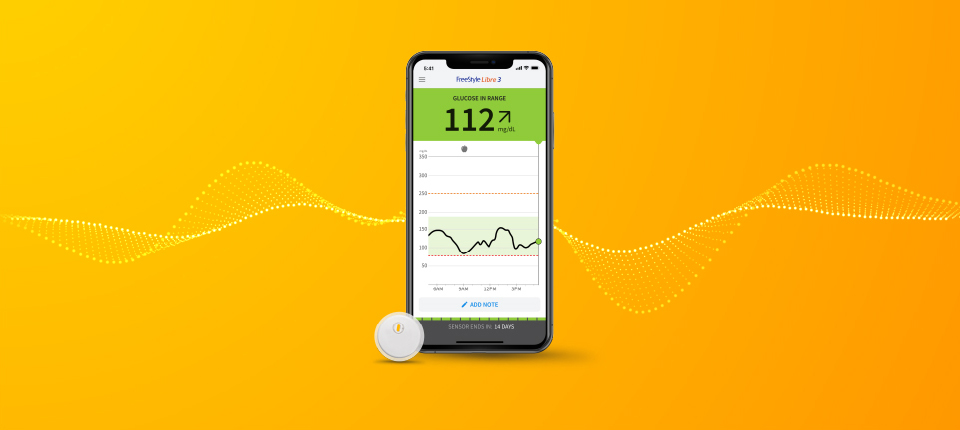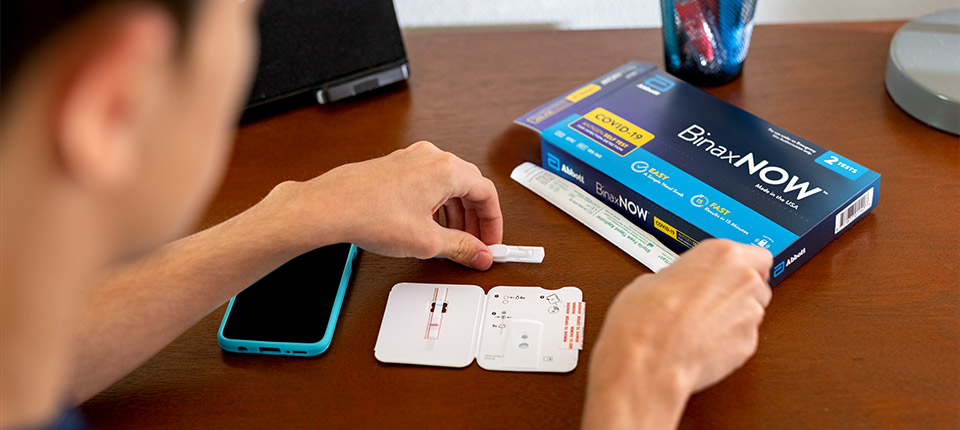Blood in need of oxygenation flows into the right atrium, down to the right ventricle to be pumped through the pulmonary artery to the lungs.
When that blood comes back to the heart, chock full of oxygen, it arrives in the left atrium, down to the left ventricle to be pumped up through the aorta to the rest of the body before returning to the heart.
It's a cycle that happens billions of times in the average lifetime.
It's a coordination we admire and appreciate. Supporting that beat is essential to the work we do at Abbott. With February designated as Heart Health Month in the U.S., it takes on even greater significance to us.
"Research and development within the cardiovascular space has never been more exciting, and teams throughout Abbott are finding new ways to improve existing technology while also driving entire therapy segments in new directions," said Mark Strong, divisional vice president of program development within Abbott’s Cardiac Arrhythmias and Heart Failure division.
Here's just a sample of our expanding cardiovascular portfolio to care for your heart:
- Our Confirm Rx™ Insertable Cardiac Monitor is the only smartphone-compatible cardiac monitor on the market designed to help physicians remotely identify abnormal heart rhythms in patients. Inserted just under the skin in the chest, Confirm Rx allows patients who may be suffering from symptoms of an abnormal heart rhythm — such as dizziness, shortness of breath or a fainting — to stay connected to their physician 24/7 and better engage in their healthcare.
- The CardioMEMS™ HF System is life-changing technology that addresses heart failure. Heart failure affects more than 26 million people globally. In the U.S. alone, nearly 10 percent of all deaths include heart failure as a contributing cause. Some researchers have calculated the annual worldwide economic burden of heart failure to be as high as $108 billion, a cost primarily driven by hospital readmissions. The device is the first and only FDA-approved heart failure monitoring device that has been proven to significantly reduce heart failure hospital admissions when used by physicians to manage heart failure in certain classes of patients (NYHA Class III HF).
- Our new TactiCath™ Contact Force Ablation Catheter, Sensor Enabled™, is our latest ablation catheter designed to help physicians accurately and effectively treat cardiac arrhythmias — including atrial fibrillation and other complex arrhythmias (when your heart is beating too quickly, slowly or out of rhythm). Best of all, the catheter is the latest of our ablation tools that integrates with the EnSite Precision™ cardiac mapping system to help physicians develop more precise images of the heart during cardiac ablation procedures.
- XIENCE™ Sierra, Abbott's newest generation of coronary drug-eluting stents, which are among the most-widely used and studied stents in the world.
- MitraClip™, our transcatheter mitral valve therapy, is a safe option for select surgical high-risk patients with severe degenerative, or primary, mitral regurgitation (DMR) and has been implanted in more than 70,000* people around the world.
- Our Amplatzer™ PFO Occluder to help reduce the risk of recurrent stroke in patients diagnosed with a patent foramen ovale. PFO is a small opening between the upper chambers of the heart. Researchers have long suspected that cryptogenic stroke (or strokes of unknown cause) could be linked to PFO. Worldwide, one in four people have a PFO and are at risk for recurrent strokes. PFO closure with the Amplatzer PFO Occluder has been shown to lower the risk of stroke by sealing the unwanted hole between the left and right chambers of the heart.
- After decades of heart valve innovation — including the world’s smallest pediatric mechanical heart valve to treat babies in need, the Masters HP™ 15mm valve — more than 2.8 million of our mechanical heart valves have been implanted worldwide*. Our Masters series bi-leaflet valves, involving two half-disks that open and shut in unison, were FDA approved in 1982 and continue to be the industry standard.
"As a leader in cardiovascular therapy development, we have to stay vigilant in capitalizing on new data, new technology and discoveries to optimize the devices and therapies across our entire portfolio to make sure that we're improving patients' lives," Strong said.
"In addition to pushing new technology forward, we have to make sure that each solution we bring to market is generating additional benefits, such as reducing the cost of care, improving workflow or incorporating new technology into how physicians and patients utilize medical devices. The problems we're trying to solve are massive, but the energy we're putting toward solving those problems is even greater."
Abbott takes seriously its job to provide high quality technologies that improve lives by providing knowledge to patients and tools to doctors. Our 103,000-strong company employs more than 2,300 scientists.
The sooner we can help get you start feeling better, the sooner you can get back to living your fullest, healthiest life.
"I'm just really encouraged by the possibilities," Jacobs said.
Taking care of your heart? It's in our blood.






FOLLOW ABBOTT